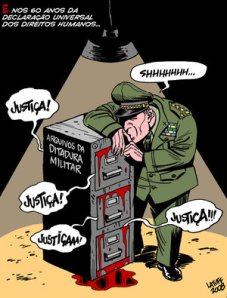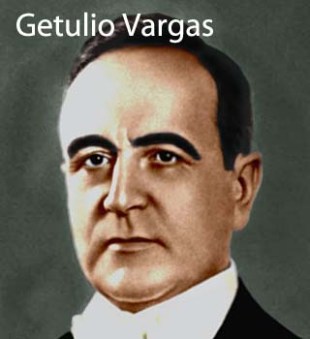by Conor Searles
The Early Republic of Brazil
The early republic, or as it is referred to according to Brazilian history “the old republic” was the first of 5 phases of rule in Brazil. The Republic era however stretches from 1889-1985 or so and has seen a variation of loose democracies to military dictatorships over this roughly 100 year span in Brazilian history. The five eras of the republic are as follows:
- Old Republic (1889-1930)
- Vargas Era (1930-1945)
- Populist Republic (1945-1964)
- Military Dictatorship (1964-1985) (Courtesy ictj.org and ecocitification)


- New Republic (1985-Present)
Brazil was under a monarchy rule for the majority of the 19th century. During this monarchy rule slave labor was still a major part of the Brazilian economy, especially on coffee plantations in both Rio de Janeiro and Sao Paulo. The slave population was estimated to be only about 5% of the total population, about 723,000 or so. While the monarchy seemed to have relative stability of rule at the time, much of the southern part of the country, as well as slaves in the northeast region began to openly revolt. To make things more difficult, many laws at the time tended to benefit the coffee producers, many of whom had their own private militaries of sorts to run their vast plantations. However as the monarchy began to limit slavery the plantation owners, who were dependent on slave labor, grew discontent with the rule of the monarchy towards the end of the 19th century. Along with the growing discontent from the landowners, many members of the military began to question the ruling authority of the monarchy as well.
A man by the name of Benjamin Constant began to preach the ideals of republicanism and positivism, and quickly his preachings made their way around the hierarchy of officers in the military, and quickly the notion of Brazil becoming a republic spread. After much talk of creating a republic, Manoel Deodoro da Fonseca along with a group of military officers launched a coup d’état on November 15,1889 against the monarchy. Upon the departure of the royal family, a provisional government was formed and leaders of the republic were named:
- Constant as minister of war
- Ruy Barbosa as minister of finance
- Maneol Ferraz de Campos Sales as minister of justice
Several acts were taken by the new republic as well to establish themselves as a legitimate form of government:
- Destroyed many records pertaining to slavery
- Denied landowners compensation for loss of slave labor
- Separated church and state
- Created civil marriage
- Abolished titles of nobility
In creating these rules the republic quickly saw many conservatives turn against them, and they also did little to create opportunity and prosperity for the common citizens. As a result the new regime that was the republic of Brazil was under heavy scrutiny very early on. Manoel Deodoro da Fonseca was elected president but only remained so for roughly 2 years until a financial crisis struck Brazil, and he was replaced by Field Marshal Floriano Vieira Peixoto (then minister of war) to take over rule. This transition was made to ensure military compliance during the transition.
This constitutional democracy was hardly considered legitimate and saw a shift of power occur between the oligarchies of the dominant states of Sao Paulo and Minas Gerais, or the “coffee with milk” being that these were the primary exports of these given states. During the early republic much of the time was spent developing a government that would effectively replace the monarchy, while also facing a constant struggle with several powerful state oligarchies. It was as the power of the oligarchies grew that Brazil saw yet another transition of power from then President Washington Luis to Getulio Vargas during the revolution of 1930.
After losing the presidential election of 1930, Vargas led a revolution that saw him gain power in Brazil. Before President however Vargas was formally the governor of the state of Rio Grande Do Sul, and encountered a great depression during his first years as president and saw the state of Sao Paulo attempt a violent and bloody but ultimately unsuccessful revolution. In 1934 Vargas created a new constitution that provided for universal suffrage, as well as give the central government greater authority. However despite this reform yet another revolt occurred, and this in turn caused Vargas to create an entirely new constitution and seized absolute power, virtually turning him into a dictator rather than president. The new administration, known as the Estado Nôvo (“New State”), so heightened Vargas’s control that he was able to suppress all manifestations of popular will and strip Brazil of most of the trappings through which it might eventually hope to become a democracy. Vargas increasingly shifted the states’ political, economic, and social functions to the aegis of the national government. (Burns et. Al., Britannica.com /EBchecked/topic/78101/Brazil/25048/The-Vargas-era).
While Vargas years as a leader seemed to be filled with one revolution after another, and much like the early republic instability in the government, he made several key changes to Brazil that greatly benefitted the country in the form of :
- Diversifying the agricultural sector
- Creating social legislation that benefitted the middle class
- Created industrial reform via import-substitution.
During WWII Vargas and Brazil agreed to ally themselves with the United States, and though not very involved in the war played a significant role I patrolling the Atlantic for German submarines and providing the U.S. navy with bases on the coast. It was towards the end of WWII that Vargas saw his reign as dictator of Brazil come to an end, in a very similar fashion to that of the early republic as well. Afraid that Vargas would seek to retain power, military officers launched a coup that forced Vargas to resign from office on October 29, 1945 and the country began to experiment with democracy shortly after his resignation.
The Early republic years of Brazil were very chaotic and saw leadership and the direction of the government change numerous times. Filled with unstable governments, revolutions and military coups, and surprisingly the development of Brazil the early republic was responsible for ending the monarchy rule in Brazil, and effectively beginning it transition into a democracy (despite how tumultuous the transition was). It is interesting to consider the fact that this all took place within the last century and to look at the current state that Brazil and its government is in today.
